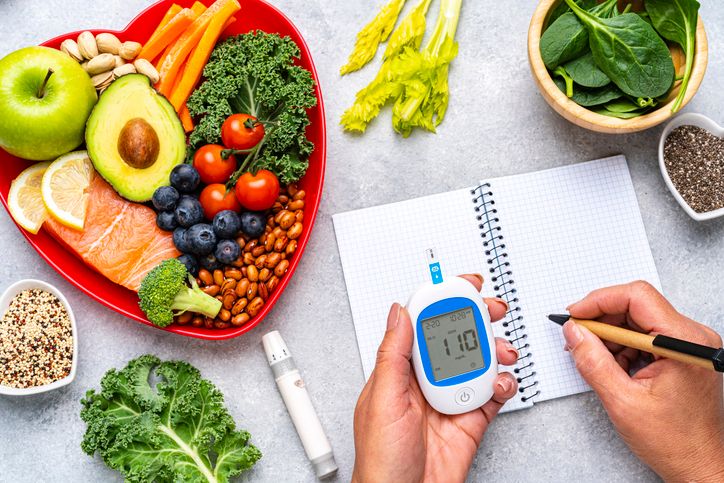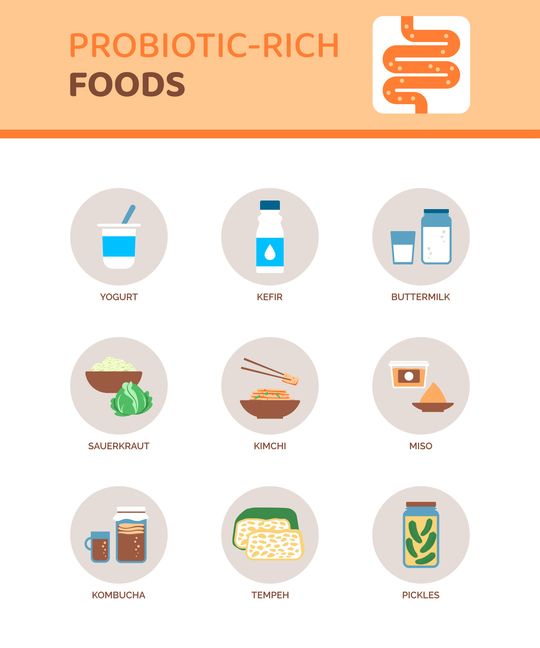
Author: Natalie Ng|Updated: 8 May 2025
Perimenopausal weight changes are common, but small shifts in your routine can help. Sleeping well in a cool, dark room can lower stress hormone cortisol and make weight management easier. Eating without distractions and keeping meals within eight hours supports a healthy metabolism. Hormonal changes during the menopausal transition slow metabolism, lower muscle mass, and change fat distribution, which makes it easier to gain weight. Poor sleep, hot flashes, night sweats, and changes in hunger hormones can add to the challenge. A balanced diet, strength training, and regular exercise like brisk walking or aerobic workouts can all help. Simple habits can boost energy, improve insulin sensitivity, and lower stress. Some women also consider hormone therapy to ease symptoms. Keep reading for 10 easy tips to help manage weight and feel your best through menopause.

Prioritize Quality Sleep to Balance Hormones

Getting enough sleep is one of the most important ways to manage perimenopausal weight gain. Poor sleep can disrupt estrogen and progesterone levels, slow metabolism, and trigger changes in hunger hormones that lead to weight gain.
How Sleep Affects Weight Changes
During the menopausal transition, many women notice that poor sleep makes it harder to maintain a healthy weight. Night sweats, hot flashes, and shifts in the stress hormone cortisol can also make it easier to gain visceral fat, especially around the belly. Over time, lack of sleep can affect insulin sensitivity, muscle mass, and energy levels, raising the risk of health issues.
Tips to Improve Sleep
Aim for 7 to 9 hours of uninterrupted sleep each night. Keep your bedroom cool, between 60-67°F, and dark by using blackout curtains. Remove electronic devices that give off blue light. Build a simple bedtime routine like stretching or reading to help your body relax naturally. Avoid caffeine after 2 PM and limit alcohol, as both can disturb sleep patterns and worsen menopause symptoms.
Better sleep supports weight management, keeps hunger signals steady, and helps with energy for regular exercise like aerobic exercise or strength training, both of which are key for maintaining a healthy weight during menopause.

Master Mindful Eating for Better Portion Control

Mindful eating helps you stay in control of your portions and supports healthy weight management during perimenopause. Paying close attention to each meal helps you notice true hunger signals and avoid overeating, both of which are important for preventing weight gain as hormonal changes slow your metabolism.
How Mindful Eating Helps With Weight Changes
During the menopausal transition, many women gain weight because hormonal changes affect hunger hormones like insulin and cortisol. Eating too quickly or while distracted can lead to consuming more calories than your body needs. Mindful eating slows everything down, helping you respond to hunger and fullness cues properly, which supports a healthy weight and balanced fat distribution.
Practical Ways to Practice Mindful Eating
• Chew your food slowly and put your utensils down between bites.
• Pay attention to the texture, flavor, and temperature of each bite.
• Eat without distractions like TV or phones.
• Check in with your hunger before, during, and after meals.
• Keep a simple food journal to track meals, hunger levels, and emotions.
Mindful eating also helps manage emotional eating, which many women experience during menopause symptoms like stress, fatigue, or night sweats. Staying connected to your body's signals can make it easier to maintain a healthy diet, lose weight if needed, and protect overall health through this phase of life.
Read More
Book Now to Experience
S6 Body Sculpting Treatment
1 Minute Self-Registration
Date should not be before minimal date

Build Lean Muscle Through Strength Training

Strength training helps protect muscle mass, boost metabolism, and support weight management during perimenopause. As hormone levels shift, many women lose muscle and gain fat more easily, which can slow down the body's ability to burn calories.
Why Strength Training Matters During Perimenopause
Lower estrogen levels during the menopausal transition cause a natural drop in muscle mass, which can lead to slower metabolism and more fat gain, especially around the abdomen. Without enough muscle, your body burns fewer calories at rest, making it harder to lose weight or maintain a healthy weight even with fewer calories eaten.
Strength training not only helps you build muscle, but it also improves insulin sensitivity, strengthens bones, and reduces the risk of health issues linked to menopause symptoms.
How to Start Strength Training
• Focus on compound exercises like squats, lunges, push-ups, and deadlifts that work multiple muscle groups.
• Aim for two to three strength training sessions per week.
• Start with light weights or resistance bands and slowly add more weight as you get stronger.
• Target all major muscle groups, including legs, core, back, and arms.
• Allow time for muscle recovery between workouts to avoid injury.
Building lean muscle can help you stay strong, improve energy levels, and manage weight changes more effectively during perimenopause and beyond.

Choose Anti-Inflammatory Foods

Eating anti-inflammatory foods can help manage weight gain and support better health during perimenopause. Chronic inflammation can make it harder to lose weight, increase the risk of health issues, and worsen menopausal symptoms like hot flashes and night sweats.
Why an Anti-Inflammatory Diet Supports Weight Management
Hormonal changes during the menopausal transition often lead to more inflammation in the body. This can cause insulin resistance, make fat distribution worse, and lower overall energy levels. Choosing a healthy diet filled with anti-inflammatory foods can ease physical symptoms, support metabolism, and prevent unnecessary weight gain.
Best Foods to Include
• Leafy greens like spinach, kale, and collard greens
• Fatty fish such as salmon, sardines, and mackerel
• Berries like blueberries and strawberries
• Nuts and seeds, especially walnuts and flaxseeds
• Whole grains such as quinoa and brown rice
• Olive oil, avocado, and legumes like lentils
Eating more of these foods helps balance hunger hormones, support muscle mass, and keep your weight changes under control during perimenopause.
Book Now to Experience
S6 Body Sculpting Treatment
1 Minute Self-Registration
Date should not be before minimal date

Manage Stress Through Mind-Body Practices

Managing stress plays a key role in weight management during perimenopause. High stress levels raise cortisol, the stress hormone, which can lead to fat storage, especially around the abdomen, and make it harder to lose weight.
How Stress Affects Weight Gain
Chronic stress increases hunger signals and lowers insulin sensitivity, making it easier for the body to store fat and harder to build muscle mass. Many women notice that stress during menopause symptoms like hot flashes and night sweats makes their weight management efforts feel harder. Managing stress helps with hormonal balance and supports a healthy metabolism.
Simple Mind-Body Practices to Try
• Deep breathing exercises for a few minutes each day
• Gentle yoga to improve flexibility and reduce stress levels
• Mindfulness meditation to stay present and lower cortisol
• Stretching or progressive muscle relaxation before bed
Practicing these habits daily can ease physical symptoms, improve sleep, and support healthy weight management through perimenopause.

Stay Hydrated With Strategic Fluid Intake

Proper hydration supports metabolism, improves digestion, and helps manage menopause weight gain. Many women experience fluid shifts during perimenopause that can lead to bloating, fatigue, and difficulty managing weight changes.
How Hydration Supports Weight and Health
As hormone levels change, your body’s ability to manage fluid balance also changes. Dehydration can increase hunger signals, slow metabolism, and make symptoms like hot flashes and night sweats worse. Drinking enough water helps regulate body temperature, support energy levels, and improve your body's ability to lose weight and maintain muscle mass.
Tips for Staying Hydrated
• Drink at least eight 8-ounce glasses of water a day
• Start your morning with a glass of water before eating
• Choose water-rich foods like cucumbers, lettuce, and watermelon
• Limit dehydrating drinks like alcohol and caffeine
• Carry a reusable water bottle to track your intake easily
Better hydration helps manage weight, supports a balanced diet, and reduces stress on the body during the menopausal transition.
Book Now to Experience
S6 Body Sculpting Treatment
1 Minute Self-Registration
Date should not be before minimal date

Balance Blood Sugar With Smart Snacking

Keeping your blood sugar steady helps prevent sudden hunger, cravings, and energy crashes during perimenopause. Hormonal changes can make blood sugar harder to control, which can lead to weight gain and increased fat storage.
Why Blood Sugar Balance Matters
Lower estrogen levels during the menopausal transition affect how your body processes glucose. Big swings in blood sugar raise the stress hormone cortisol, which can slow metabolism and increase visceral fat. Managing blood sugar helps support a healthy weight, stable energy, and better hunger signals.
Smart Snack Ideas
• Greek yogurt with berries and a sprinkle of nuts
• Apple slices with almond butter
• Raw veggies with hummus
• Hard-boiled eggs with whole grain crackers
Eating a small, balanced snack every 3–4 hours keeps blood sugar steady and helps avoid overeating later in the day.

Incorporate Movement Throughout Your Day

Staying active throughout the day is just as important as scheduled workouts for managing weight during perimenopause. Regular movement keeps your metabolism working, supports muscle mass, and helps regulate stress levels.
How Daily Movement Supports Weight Management
Long periods of sitting can slow your metabolism and increase the risk of gaining weight. Short, frequent bursts of movement boost energy levels, support blood sugar control, and help prevent muscle loss.
Easy Ways to Move More
• Take the stairs instead of the elevator
• Park farther away from your destination
• Stand up and stretch every hour
• Take a short walk during lunch breaks
• Do simple household chores at a brisk pace
Adding movement throughout the day supports overall health and helps maintain a healthy weight during the menopausal transition.
Book Now to Experience
S6 Body Sculpting Treatment
1 Minute Self-Registration
Date should not be before minimal date

Support Gut Health With Probiotic-Rich Foods

A healthy gut helps manage weight, support digestion, and balance hormones during perimenopause. Changes in gut bacteria can affect hunger hormones and fat storage, making it harder for many women to maintain a healthy weight.
How Gut Health Affects Weight Changes
Hormonal imbalance can weaken the gut barrier and shift gut bacteria in a way that increases inflammation and weight gain. A strong gut supports better metabolism, improves insulin sensitivity, and helps manage menopausal symptoms.
Probiotic Foods to Add
• Yogurt and kefir with live cultures
• Sauerkraut and kimchi
• Miso and tempeh
• Kombucha
Eating these foods regularly supports gut health and helps your body manage weight more effectively through the menopausal transition.

Time Meals to Support Metabolism

Meal timing can influence hunger hormones, fat storage, and energy levels during perimenopause. While strict eating windows are less important than once thought, consistent meal timing still plays a role in healthy weight management.
How Meal Timing Helps With Weight Control
Eating meals at regular times keeps blood sugar levels stable, supports insulin sensitivity, and helps your body use energy more efficiently. Skipping meals or eating late at night can disrupt metabolism and lead to increased fat storage.
Best Practices for Meal Timing
• Eat breakfast within two hours of waking
• Space meals 4–5 hours apart
• Avoid heavy meals within two hours of bedtime
• Focus on balanced meals rich in protein, fiber, and healthy fats
Simple changes to meal timing can help reduce the risk of weight gain, support energy levels, and improve overall health during perimenopause.
Book Now to Experience
S6 Body Sculpting Treatment
1 Minute Self-Registration
Date should not be before minimal date

Boost Your Progress With S6 Body Sculpting Treatment
Perimenopausal weight gain often leads to stubborn fat in areas like the belly, thighs, and back. Hormonal changes during the menopausal transition slow down metabolism, lower muscle mass, and shift fat distribution, making it harder for women to lose weight with diet and exercise alone. This is where the S6 Body Sculpting Treatment can help support your weight management goals.
S6 Body Sculpting Treatment is a non-invasive body contouring therapy designed to target stubborn fat without surgery, injections, or long recovery times. It uses low-energy bio-laser technology to penetrate subcutaneous fat layers, breaking down fat cells and promoting lymphatic drainage. The treatment also includes vacuum suction massage to boost metabolism and stimulate collagen production, helping to tighten the skin while reducing fat.
The treatment focuses on seven key body parts where many women gain weight during perimenopause: the arms, belly, waist, back, thighs, calves, and lower buttocks. It addresses fat storage directly, helping you achieve a more sculpted body while supporting your overall health and energy levels. By speeding up metabolism and encouraging faster fat breakdown, S6 enhances the effects of lifestyle changes like regular exercise, strength training, and a balanced diet.
One of the biggest advantages of S6 Body Sculpting is that it fits easily into a busy life. You don't need to set aside time for recovery, and the sessions are comfortable for most people. A full course typically involves 10 to 12 treatments, with noticeable improvements in fat reduction, muscle tone, and skin firmness over time.
If you're struggling with stubborn fat despite healthy habits, S6 Body Sculpting Treatment could be the extra boost you need during menopause to maintain a healthy weight, improve fat distribution, and protect your overall health.

Final Thoughts

Perimenopausal weight changes can feel frustrating, but small, steady steps can make a real difference. Prioritizing sleep, mindful eating, regular physical activity, strength training, and smart lifestyle changes can help you manage weight gain, support muscle mass, and improve overall health. Choosing supportive treatments like S6 Body Sculpting Treatment can also enhance your results by targeting stubborn fat areas and boosting your metabolism without surgery or downtime.
Every woman’s body changes during the menopausal transition, but with the right approach, you can prevent weight gain, support a healthy weight, and feel more in control of your body and life. Whether through lifestyle changes, better nutrition, regular exercise, or safe non-invasive treatments, managing weight during this time is possible.
Ready to take the next step?
Book your S6 Body Sculpting consultation today and give your body the support it deserves through every stage of life.
New Beauty's S6 Body Sculpting TreatmentBook Now to Experience
S6 Body Sculpting Treatment
1 Minute Self-Registration
Date should not be before minimal date
FAQ
1. Why do many women experience perimenopausal weight gain even with a healthy diet and regular exercise?
During perimenopause, hormonal changes like lower estrogen levels and higher stress hormone cortisol can shift fat distribution and slow down the basal metabolic rate. Even with regular exercise and a balanced diet, the body burns fewer calories and stores more fat, especially around the abdomen. Other factors like poor sleep, insulin resistance, and changes in hunger hormones can also make weight management harder. This is why focusing on muscle mass, managing stress levels, and considering treatments like S6 Body Sculpting can support better results.
2. How does strength training help women lose weight during the menopausal transition?
Strength training is important during the menopausal transition because it helps rebuild muscle mass, which naturally declines with age. More muscle means a higher resting metabolism, which helps burn more calories throughout the day, even while resting. Strength training also helps balance hunger hormones and supports insulin sensitivity, both of which are key for preventing weight gain and maintaining overall health during perimenopause.
3. Can hormone therapy prevent menopause weight gain?
Hormone replacement therapy (HRT) may help manage some menopausal symptoms like hot flashes, night sweats, and poor sleep, which indirectly support better weight management. However, HRT alone is not a weight loss treatment. Lifestyle changes like strength training, a healthy diet focused on whole grains and vegetables, and regular moderate intensity physical activity are still needed for managing weight. Some women may see improvements in fat distribution and energy levels with hormone therapy, but results vary depending on individual health and hormonal balance.
4. Why is managing stress important for avoiding fat gain during perimenopause?
Managing stress is crucial because high stress levels raise cortisol, a hormone that signals the body to store fat, especially visceral fat around the organs. Elevated cortisol can also disrupt sleep patterns, increase hunger signals, and lower insulin sensitivity, making it easier to gain weight and harder to lose fat. Stress reduction techniques like relaxation exercises, aerobic exercise, brisk walking, and deep breathing can support weight management and improve overall health during perimenopause.
5. How can S6 Body Sculpting Treatment help postmenopausal women maintain a healthy weight?
Postmenopausal women often struggle with stubborn fat that doesn’t respond to diet or exercise because of lower muscle mass and hormonal changes. The S6 Body Sculpting Treatment targets fat cells directly using low-energy bio-laser technology without surgery or downtime. It speeds up metabolism, promotes lymphatic drainage, and stimulates collagen production, making it easier for women to manage fat distribution and improve body contour. Combined with a balanced diet, strength training, and regular physical activity, S6 can be a helpful tool for managing weight changes during and after menopause.
Recommended Articles
COPYRIGHT© NEW BEAUTY MANAGEMENT LIMITED 2026. ALL RIGHT RESERVED.




